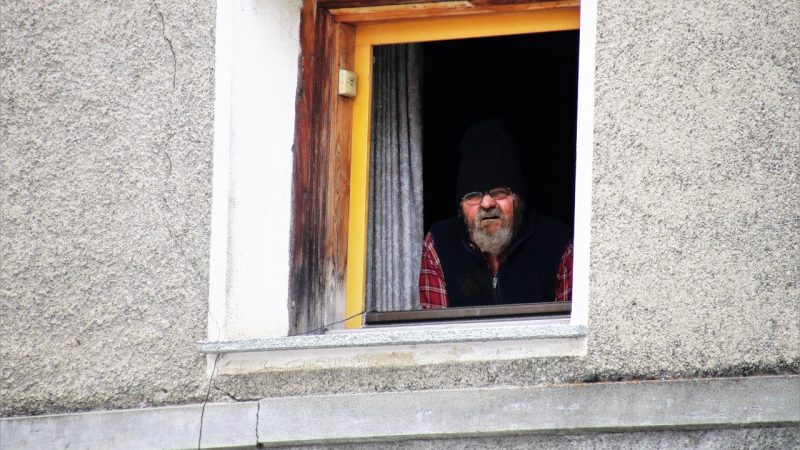Nobody should have to choose between public health and their own financial survival

Last night, the UK entered its second lockdown. Much has changed since March, in those fearful, uncertain days when little was known about the SARS-CoV-2 virus, its transmission methods, treatment of its infection. The term “Long Covid” had not even been invented.
We were facing then a suddenly arising, little-understood threat. We should have been better prepared for a pandemic, the “Disease X” the World Health Organisation had often warned of, but some of the mistakes made then were because the detail of the threat was unavoidably not clearly understood.
We do not have the same excuse now. This second lockdown is happening, belatedly, because we allowed the virus to run wild through bad decisions. ‘Eat Out to Help Out’, called out by many at the time, was just one of them and the impact is obvious – and through failure to provide support systems for the infected and exposed.
The disastrous failures of test and trace (although on trace we seem to be finally heading somewhat in the right direction in local public provision – but need to go far further) are well known.
But speaking in the debate on the regulations establishing this lockdown last night in the Lords, I looked forward, not back, asking the government about its plans for the next month, or however long this lockdown needs to last. For to justify the lockdown’s economic, social and medical costs, we need to use this time to genuinely control the virus.
I focused on two elements of what’s needed to bring down infection rates: “isolate and support” (the latter being the missing element from the government’s plans). Without it, “isolate” is not working and cannot work, not through individual choice but system failure.
There has to be real, effective, genuine support for everyone asked to self-isolate who needs it. The £500 payment for self-isolation has to be extended to everyone who needs it. Only one in eight workers is now eligible. Statutory sick pay has to be set at a living wage level, and available to everyone.
But even the healthy, in fact everyone, needs enough money to be secure, every day. That includes the self-employed, the casually employed – those who’ve fallen through the gaping holes in the government’s financial safety nets.
Insecurity will cause individuals to make understandable decisions that will be disastrous for all of us. If you have been penniless for months, have secured a job starting today then start to show symptoms, what are you going to do?
And inadequate housing options limit many. If you are a young adult in a shared household, a parent in a multigenerational one with child and elder care responsibilities, a teenager who shares a bedroom with a sibling as a result of the disastrous bedroom tax, isolation is incredibly difficult.
There are a lot of empty hotels around the country. Why are people not being offered a free, supported option to isolate when it will be very difficult or impossible at home?
Poverty, inequality, insecurity are gaping wounds through which the virus can readily enter.
And those who are most likely to need high-level NHS services if they are infected need more help. There needs to be support for the people returning effectively to shielding (£14 per person for councils is clearly not enough), and to the people in their 60s and with chronic health conditions, workers left with desperately difficult decisions to make, not aided by government confusion and mismanagement. They need protection. Financial need should not force them to work.
We also need to address transmission in workplaces and schools.
“Covid-safe” is a nice phrase. It clearly for lots of workers is not a reality. More than a third are still worried about catching it at work, the Health and Safety Authority – greatly reduced in size and reach by austerity since 2010 – is almost invisible, and the “Riddor reports” that should identify problems, the Financial Times has reported, are not being made.
Schools – particularly secondary schools – attended by pupils whose vulnerability to catching and spreading the virus and universities are another system vulnerability. They cannot continue as now and the belated step towards masks in secondary is too little too late.
I didn’t get any answers to my comments last night from Health Minister Lord Bethell, which didn’t surprise me. The debate was dominated by what proved to be a tiny number of lockdown refuseniks. Only 30 members voted for Lord Robathan’s “fatal motion”, which would have stopped the lockdown, and none of the half dozen of other “regret” motions, all moved by Tory rebels, were then put to the vote.
But the Green Party will keep pushing on all of these issues. There are huge costs of lockdown – in mental health, in isolation and loneliness, in lost small businesses and lost jobs. On that the critics are right.
There is no alternative to lockdown now, but there are alternative paths to the other side of this lockdown, whenever it ends. Only transformatory action against poverty and insecurity, and towards providing support that people need, will guarantee that we don’t face a disastrous cycle of unwise release followed by new lockdown.
Natalie Bennett is a former leader of the Green Party of England and Wales and a member of the House of Lords
To reach hundreds of thousands of new readers we need to grow our donor base substantially.
That's why in 2024, we are seeking to generate 150 additional regular donors to support Left Foot Forward's work.
We still need another 117 people to donate to hit the target. You can help. Donate today.



